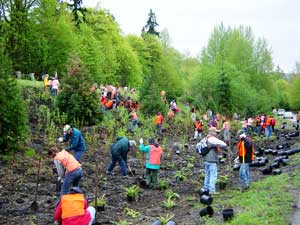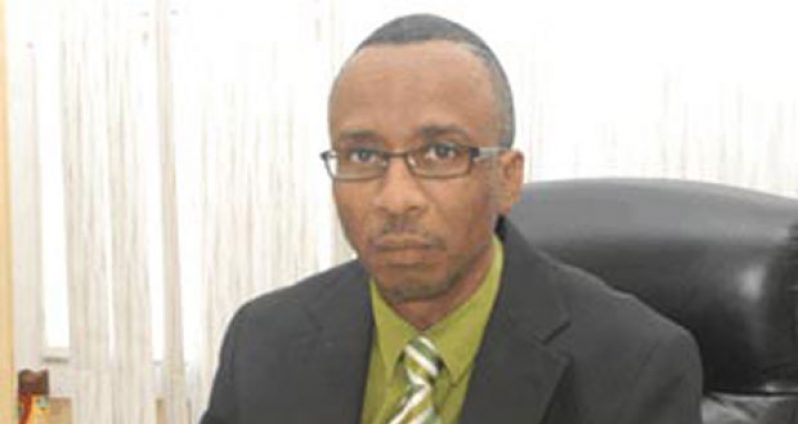BEFORE I proceed with this week’s article, I wish to extend my heartfelt congratulations and best wishes to Ambassador Elisabeth Harper, who will be the Prime Ministerial candidate for the PPP/C at the upcoming May 11 General and Regional elections.
I wish to also indicate that this is the first of a three-part series examining the whole concept of volunteerism specifically with regard to recruitment of young people with no work experience. It is also my intention to address once again the issue of developing an Accreditation mechanism that would contribute to enhancing the Curricula Vitae (CVs) of job-seekers. I also hope to address relatively sensitive issues with regard to enhancing our labour force by strategically enhancing our population, which may well mean the adoption of initiatives which will result in persons from other countries being invited to support the development of Guyana. I wish to leave with my readers the following scenario: “How do we expect young people with no work experience to get employment, when a major hurdle is lack of work experience.”
Over the years, I’ve had the privilege of volunteering my services on several State boards and other organisations. On the one hand, it is rewarding work, the primary benefit for me being the opportunity to serve the country. The work, even though voluntary, is as strenuous and demanding as any paid job however and, like others similarly tasked, I’ve had to be creative in making sure that I deliver the best possible input into whatever role I undertake.
Over the years of my involvement in such activities, I would not have been able to stretch myself as admittedly thin as I have without the support of a cadre of young people, whose commitment has proven to me a debunking of the myth that our youth have little interest or ability when it comes to serious work.
Whereas, far too many see a position on a board as a status symbol in itself, proof that they are a notch above the average citizen. I believe that not only does it represent the ability to prove one’s nationalism, but to transmit that sense of commitment as widely as possible while providing the opportunity for the upcoming generation to learn things that will be useful to them down the line.
The approach I’ve used is to explore the extent to which I could involve young people – once basic concerns of professionalism, confidentiality or conflicts of interest are not breached – in supporting the work I am doing and my payback has not just been the ability to carry out my assigned work easier, but a chance to see youthful innovation and inventiveness at work. Most importantly, the job that I’ve undertaken gets done – the board benefits, the entity benefits, and the country benefits.
Far too many young people in Guyana today are not afforded the avenues for outlet for their intellectual energy. In contrast, there are a considerable number of people who have accumulated a wealth of knowledge in various fields. Several people I know that have served on boards or other policy-making mechanisms for years, as much as a decade or more in some cases, during which time they would have accumulated a fair amount of technical knowledge, in addition to institutional memory.
For me, this falls into the realm of the issue of the transfer of knowledge, one which I’ve dealt with before in this column, and will return to again. For now, by way of example, I could say this: I have seen various organisations retain, over a number of years, various expatriate consultants to work on the very same issue. What was missing from their operational model, in my estimation, was a mechanism in which knowledge pertinent to whatever needed to be fixed was transferred to local personnel, preventing the perpetual dependency of the respective organisations. To be fair, I know at least one donor organisation I worked with which had a practice of “twinning” their consultants with local counterparts, although this is more the exception than the rule.
I would humbly suggest – and this is something I will give much greater development in a subsequent article – that perhaps a special mechanism be established when engaging not just donors, but commercial enterprises as well. We are on the verge of tremendous ventures in exploitation of our petroleum resources, for example: I believe that a system of building incentive options – linking the sharing of specialist knowledge to specific benefits – into whatever agreements are being made can be a feasible option.
I’m not speaking here of training of the local personnel on the entity workforce, which is a separate issue, but a “twinning” of specialist personnel with tertiary education students, from either the University of Guyana or the various technical institutes, as well as the labour colleges.
My point is that we need to move beyond engaging foreign corporate investors using the usual institutions such as GO-Invest, the GRA and the Ministry of Finance, but to also come up with ways in which they can commit to our learning institutions. Of course, it would be prudent for those institutions to at least strive to meet these agencies halfway. The petroleum industry, cited above, may not be operational at present, nor is the hydropower industry; this does not mean however that our institutions of higher learning cannot be proactive in preparing for their advent. While we cannot practically expect a full programme tailored to the engineering needs of, say, the petroleum industry, there is the scope for the current engineering curriculum to organise one course, or some other facility, tailored to a specific element of that industry, such as basic petroleum extraction for example.
All that said, I strongly believe that we need to start creatively engaging the energy and capabilities of our young people, in the many avenues which are available; and perhaps over time we would see the youths traditional choices of career aspirations changing from doctor and lawyer. For me personally, and I’ve said this publicly, one of the things that has kept me going over the years is the knowledge that, while the work is being done, a few members of our country’s next generation of leaders are being given some of the tools they will need to succeed.
Happy Mashramani to all my readers!
By Keith Burrowes
I wish to once again express my sincere thanks to those persons and intuitions that have made these articles possible including the Guyana Chronicle specifically the Editorial and IT staff, R. Johnson, D. Francis and other individuals who have reviewed and provided editorial support in ensuring the publication of these articles. I also wish to thank the readers for their feedback which provided me with the new ideas to write on.




.png)









